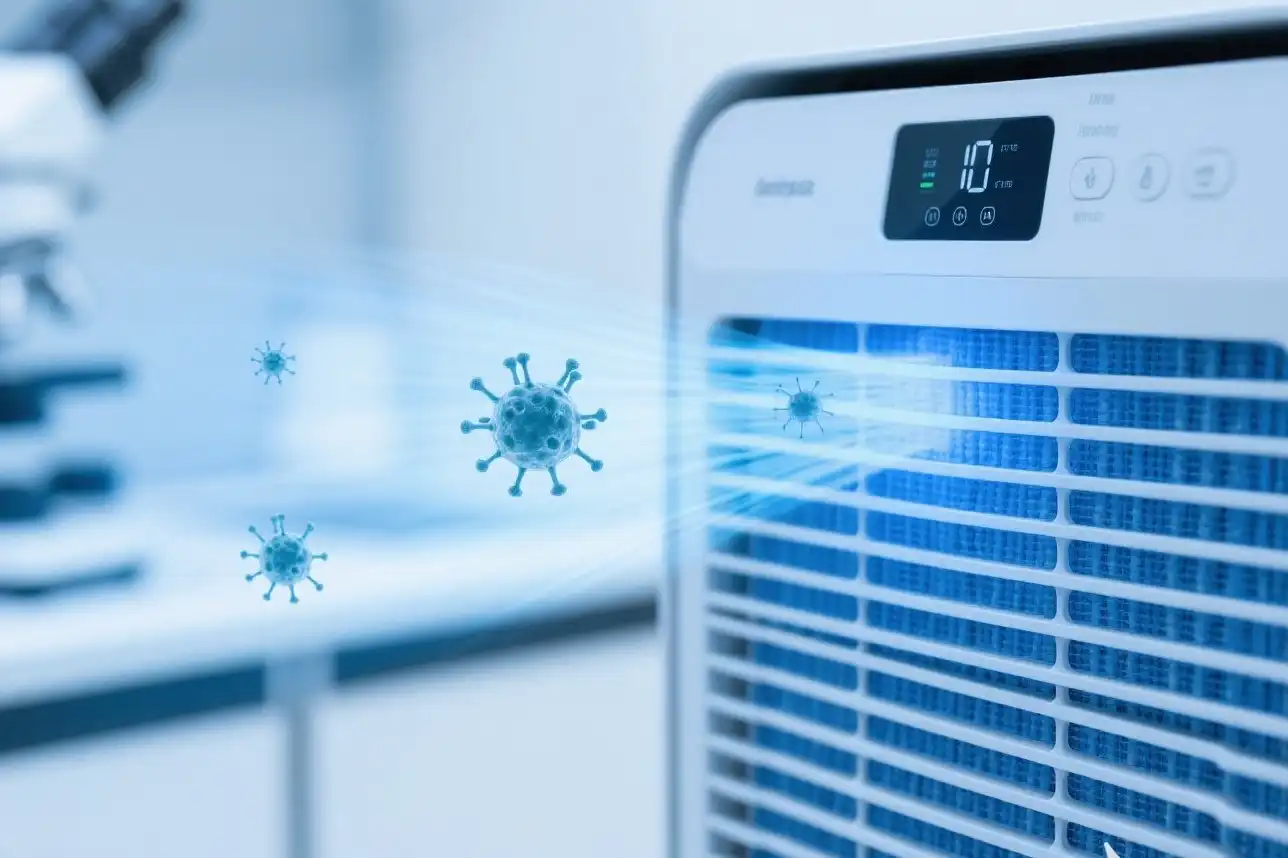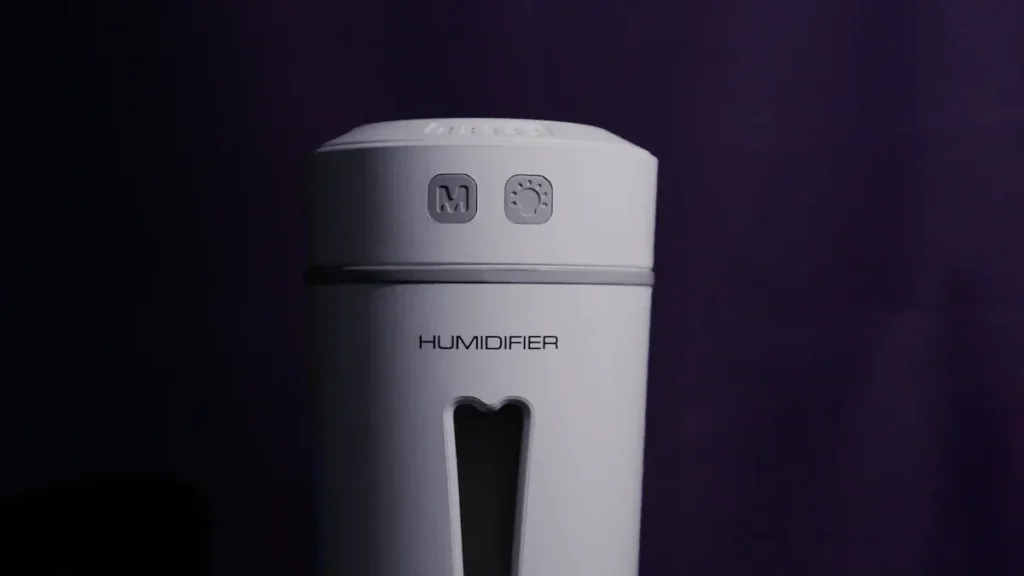
You can keep yourself healthy by making the air inside cleaner. Studies show that bad indoor air can cause breathing problems and heart disease. It can also change how you feel and remember things. Some people, like kids, older adults, and people with allergies, are affected even more. Air purifiers take out bad particles from the air. This makes your home safer and helps you stay healthy.
Key Takeaways
- Air purifiers with HEPA filters take out most bad particles. These include dust, smoke, and allergens. This makes the air inside cleaner and safer.
- Using air purifiers can help lower allergy and asthma problems. This helps people breathe easier. It also helps them sleep better.
- Air purifiers also cut down viruses and germs in the air. This helps people stay healthy during cold and flu seasons.
- To get the best results, pick an air purifier with the right filter. Make sure to change the filters often.
- Air purifiers work best with other healthy home habits. These include cleaning, letting in fresh air, and controlling moisture.
Air Purifier Effectiveness
Removing Pollutants
There are many things in your house that make the air dirty. Cooking, burning incense, and smoking put PM2.5 into the air. These tiny particles can hurt your lungs and heart. Using an air purifier at home can help keep you safer.
- Studies say air purifiers can take out 43% to 86% of PM2.5. The amount depends on where the pollution comes from. For example, air purifiers can remove up to 86% of smoke particles. They can also take out over 80% of particles from incense.
- Air purifiers work faster than just opening windows. They are better than waiting for the dust to fall, especially if the air outside is dirty.
- Research shows that filtration is the best way to clean indoor air.
You can see how well HEPA filter air purifiers work in different places:
| Study Context | PM2.5 Reduction Range | Notes |
|---|---|---|
| Child’s bedroom (indoor air quality) | ~50% | Average reduction in PM levels |
| Homes with asthmatic children | 69% to 80% | Dramatic PM reduction using filters |
| Public buses (portable air purifiers) | 42% to 74% | Reduction from ~400 µg/m3 to below 15 µg/m3 |
| UK homes (modeling study) | ~50% | Approximate reduction in indoor PM2.5 |
HEPA filters can catch 99.97% of particles as small as 0.3 microns. This means they are great at removing dust, smoke, and pet dander. You can trust a HEPA filter air purifier to help keep your air cleaner.
Note: Real-world studies show portable air cleaners lower PM2.5 by about 49%. The results change based on how long you use the device and how high you set the airflow.
Virus and Allergen Reduction
Air purifiers do more than just take out dust and smoke. They also help lower viruses and allergens in the air. This is important for your health, especially during cold and flu season or if you have allergies.
- Lab tests show portable air purifiers with HEPA filters can catch and lower airborne viruses like influenza A by over 99% in 20 to 35 minutes.
- Some devices can even catch particles as small as 0.1 microns with over 97% efficiency.
- Studies using both HEPA filters and UV light show more than 99% less airborne bacteria and less surface contamination after 45 minutes.
But experts say that while air purifiers can take viruses out of the air, there is not enough proof yet that they lower infection rates for illnesses like COVID-19. Scientists agree that air purifiers are good at removing viruses, but more research is needed to know if they stop people from getting sick.
For allergens, clinical trials show that using a HEPA filter air purifier for six weeks can lower PM2.5 and PM10 in bedrooms and living rooms. This means people need less allergy medicine and have better control of their symptoms. Some new air purifiers use special technology to destroy allergen proteins, giving even more help to people with allergies.
Tip: If you have allergies or asthma, using an air purifier in your bedroom or living room can help you breathe better and may mean you need less medicine.
Health Benefits

Allergy and Asthma Relief
If you have allergies or asthma, breathing can be tough. Dust, pollen, and pet dander make it worse. Air purifiers in your home can help you feel better. Many studies show that HEPA filters lower allergens and tiny particles. Here are some things researchers found:
- Reviews and meta-analyses say HEPA filters lower allergens and particles in the air.
- Some studies report fewer asthma symptoms and less coughing at night. People also breathe easier when using air purifiers.
- One study lasted a year and looked at adults with asthma. They needed less medicine and had better breathing after using a HEPA air cleaner.
- Studies measuring cat allergen Fel d 1 found big drops with HEPA purifiers.
A clinical trial with 38 kids who had allergic asthma showed good results. Using HEPA air purifiers for six months made the air cleaner. It also lowered dust mite allergens. The kids had better Asthma Control Test scores. This means they felt better and had fewer symptoms. Another study with 30 kids found air purifiers cut PM2.5 almost in half. Kids also used less asthma medicine.
Air purifiers do not always change lung function or medicine use for everyone. But many people notice fewer symptoms and better sleep. Experts say to use air purifiers with other ways to control allergens for best results.
Respiratory Health
Breathing clean air helps your lungs and heart. Air purifiers take out tiny particles and germs that can make you sick. Research shows air purifiers lower airway resistance in kids with asthma by 24%. This makes it easier for them to breathe. Air purifiers also lower smoke and chemicals in the air. These things can cause swelling and weaken your immune system.
A 2022 study looked at people with COPD. Using HEPA-certified air purifiers led to fewer breathing problems. People coughed less and slept better. They needed less medicine and had more energy. In schools and hospitals, purified air means fewer cases of flu and other illnesses.
| Study Aspect | Details |
|---|---|
| Population | 32 healthy adults in ordinary homes |
| Study Design | Randomized crossover intervention with true vs sham air purifiers over 4-week periods |
| Indoor PM2.5 Reduction | 11% decrease with true air purifiers (not statistically significant, p=0.08) |
| Pulmonary Function Impact | No significant improvement observed (FEV1.0/FVC and MMEF not improved) |
| Other Findings | Increase in indoor PM10–2.5 and O3 linked to decreased lung function |
| Limitations | Small sample size, real-life conditions, low baseline PM concentrations in developed country |
| Conclusion | Slight improvement in indoor PM2.5 but no clear respiratory health benefit in healthy adults |
Recent reviews say air purifiers help most if you have asthma or COPD. For healthy people, the benefits are not as clear. But lowering indoor pollution is always a good idea.
Protection for Vulnerable Groups
Some people get sick more easily from dirty air. Babies, kids, older adults, and people with weak immune systems need extra help. Air purifiers lower dust, mold, germs, and smoke in the air. This can stop breathing problems and other health issues.
Experts say air purifiers help people with lung diseases like asthma and cystic fibrosis. They also help people who get infections easily. Studies show air purifiers can improve lung function and lower blood pressure in older adults. In one study, fine particles dropped by 57%. People had better lung function and blood pressure.
| Vulnerable Group | Intervention Details | Health Outcomes / Benefits |
|---|---|---|
| Pregnant women | Use of portable HEPA air purifiers during pregnancy | 29% reduction in indoor PM2.5; 85 g increase in mean birth weight |
| Older adults (low-income seniors) | HEPA and low-efficiency filtration in homes | 52-59% reduction in indoor PM2.5; significant reductions in systolic blood pressure; marginal diastolic BP reduction |
| Homemakers (general adult population) | MERV 11 filtration in window AC units for 1 year | PM2.5 reduced from 22 to 13 μg/m3; reductions in blood pressure, systemic inflammation, oxidative stress |
| Asthma patients | Use of domestic air filters (based on 10 RCTs) | Fewer allergic symptoms and less sleep disturbance; no significant effect on nasal symptoms or medication use |
Breathing dirty air for a long time can hurt your heart and lungs. This is worse for people who are already at risk. Air purifiers lower these risks by making the air cleaner. This leads to better health and a better life for you and your family.
How Air Purifiers Work

Filtration Technology
Modern air purifiers use different filtration technology. Each type helps clean the air in its own way. The most common is the HEPA filter. This filter can trap 99.97% of particles that are 0.3 microns or bigger. It catches dust, pollen, and some bacteria and viruses. HEPA filters use three ways to trap tiny things: interception, impaction, and diffusion.
Some air purifiers have UV-C lights. These lights shine on germs and break their DNA. This makes the germs harmless. Ionization or plasma systems send out charged particles. These stick to pollutants and help remove them from the air. Activated carbon filters work in another way. They soak up gases and smells, like those from cooking or cleaning. HEPA filters cannot catch these gases.
Here is a table that explains how each technology works and what it does best:
| Filtration Technology | Mechanism | Efficiency and Effectiveness | Notes on Use and Limitations |
|---|---|---|---|
| HEPA Filters | Physically trap 99.97% of particles ≥0.3 microns, including allergens, bacteria, some viruses | Highly efficient for particulate removal, including very small particles due to Brownian motion | Requires air to be drawn through filter; does not kill pathogens, only traps them |
| UV-C Lights | Emit ultraviolet light that disrupts DNA of pathogens, rendering them inactive | Effective against airborne pathogens if air is directly exposed multiple times to UV light | Limited by need for direct exposure; bulbs degrade over time; potential ozone emission |
| Ionization / Plasma Systems | Electrically charge air molecules to bind and inactivate pathogens and reduce odors | Effective at inactivating pathogens and reducing odors; continuous operation with low power consumption | No routine maintenance; no harmful byproducts; effectiveness depends on ion circulation in the room |
| Activated Carbon Filters | Absorb volatile organic compounds (VOCs), gases, and odors | Effective for chemical contaminants and odors, not particulates or pathogens | Often combined with other filters for comprehensive air cleaning |
Tip: You get the best results when you use an air purifier that combines several of these technologies.
Types of Pollutants Removed
There are many indoor pollutants you deal with every day. Air purifiers can help remove most of them. HEPA filters are good for dust, pollen, pet dander, mold spores, and some bacteria and viruses. These filters catch particles as small as 0.3 microns. This covers most allergens and fine dust.
Some pollutants are gases, not particles. Volatile organic compounds (VOCs) come from paint, cleaning products, and furniture. You need an activated carbon filter to get rid of these gases. This filter soaks up VOCs and smells that HEPA filters miss.
- HEPA filters catch:
- Dust and dust mites
- Pollen and plant spores
- Pet dander
- Mold spores
- Some bacteria and viruses
- Activated carbon filters soak up:
- VOCs (like formaldehyde and benzene)
- Cooking and pet smells
- Smoke and chemical fumes
UV-C lights and ionizers can help lower germs and smells. Always check if the air purifier is safe and certified for home use.
Note: For the best air quality, pick a purifier that fits your needs and the types of pollutants in your space.
Choosing and Using an Air Purifier
Filter Types
Air purifiers have different filter types. Each filter works best for certain things in the air.
- HEPA filters catch tiny things like dust, pollen, mold spores, pet dander, and some viruses. These filters help people with allergies. They also lower health risks from small particles.
- Activated carbon filters take out gases, smoke, smells, and chemicals. HEPA filters cannot catch these things. These filters are good if you worry about smoke or strong smells at home.
- Some air purifiers use both HEPA and activated carbon filters. This helps remove both particles and gases. The air gets cleaner for people with allergies, pets, or smoke problems.
Tip: Pick a filter type based on what you want to clean from your air. If you have allergies, get a HEPA filter. If you smell smoke or odors, choose a purifier with activated carbon.
Safe Use and Maintenance
You must keep your air purifier clean and change filters on time. This helps the purifier work well and keeps you healthy.
- Change HEPA filters every 6 to 12 months, or as the maker says.
- Replace activated carbon filters every 3 to 6 months, especially if you smell odors.
- Clean pre-filters every month to catch big dust and hair.
- Wipe the outside of the purifier every few weeks with a damp cloth.
- Watch for filter lights and change filters when needed.
If you do not take care of your purifier, it will not clean the air well. Dirty filters can even spread mold or bacteria. Always use the right filter for your purifier and follow the instructions.
Limitations
Air purifiers help lower indoor air pollution, but they do not fix every problem. You still need to open windows, clean often, and control moisture to keep your air healthy. Some purifiers can make ozone or other things that may hurt your lungs. Using the wrong filter or not changing it can make the purifier work worse. Studies show air purifiers can lower particles and help some people. But they may not stop all sickness or make everyone healthier. You should use them as part of a bigger plan for clean air.
You gain many health benefits when you use an air purifier at home or work.
- HEPA filters trap viruses and particles, helping lower illness risk and improve memory and test scores.
- Cleaner air means fewer missed days at school or work and better heart and lung health.
To get the most from your air purifier:
- Place it in the center of the room for best airflow.
- Change filters and clean the unit as the maker suggests.
- Pick a model with a true HEPA filter and the right size for your space.
Taking steps like keeping rooms clean, using natural cleaners, and opening windows also helps you breathe easier and stay healthy.
FAQ
What does a HEPA filter remove from the air?
A HEPA filter removes dust, pollen, pet dander, mold spores, and some bacteria and viruses. You get cleaner air and fewer allergens in your home.
What size air purifier do you need for your room?
You need to match the air purifier’s coverage area to your room size. Check the product label for square footage. A small purifier works for bedrooms. Large rooms need bigger units.
What maintenance does an air purifier require?
You need to change filters regularly. Most HEPA filters last 6 to 12 months. Clean pre-filters every month. Always follow the manufacturer’s instructions for best results.
What are the main benefits of using an air purifier?
You get cleaner air, fewer allergy symptoms, and less dust. Air purifiers help protect your lungs and heart. They also lower the risk of illness for you and your family.
See also
Top Ways Air Purifiers Improve Your Home Environment
7 Surprising Health Benefits of Using an Air Purifier
What Happens Inside an Air Purifier When It Cleans the Air
Air Purifier Myths, Real Results, and How to Avoid Being Scammed
